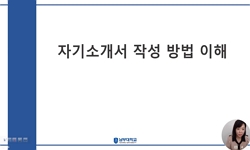The purpose of study is to examine the effect of the self and superior appraisal on the job motivation and performance of nursing practice. These subjects were divided into two groups by randomization, group is assigned by self-appraisal and superio...
http://chineseinput.net/에서 pinyin(병음)방식으로 중국어를 변환할 수 있습니다.
변환된 중국어를 복사하여 사용하시면 됩니다.
- 中文 을 입력하시려면 zhongwen을 입력하시고 space를누르시면됩니다.
- 北京 을 입력하시려면 beijing을 입력하시고 space를 누르시면 됩니다.
간호업무 수행에 대한 자가 및 상급자 평가가 직무 모티베이션과 간호업무 성과에 미치는 영향 = The Effect of Self and Superior Appraisal on The Job Motivation and Job Performance of Nursing Practice
한글로보기https://www.riss.kr/link?id=A2083807
- 저자
- 발행기관
- 학술지명
- 권호사항
-
발행연도
1999
-
작성언어
Korean
- 주제어
-
KDC
512.8
-
자료형태
학술저널
-
수록면
39-56(18쪽)
- 제공처
-
0
상세조회 -
0
다운로드
부가정보
다국어 초록 (Multilingual Abstract)

These subjects were divided into two groups by randomization, group is assigned by self-appraisal and superior appraisal group as the following steps.
In the self-appraisal group (1) job motivation was measured before evaluating job performance, (2) self-appraisal on job performance (3) job motivation measured (4) self-appraisal on job performance after three months. In the superior appraisal group (1) job motivation was measured before evaluating job performance (2) superior appraisal on job performance (3) job motivation measured (4) superior appraisal on job performance after three months.
The subjects were 185 staff nurses with under five-year work experience at 40 nursing units under the similar work condition university hospital in Seoul.
The data were collected from these nurses from January 15 1998 to April 9 1998.
for the motivation measurement, the Yang (1995)'s tool was used and for job performance measurement, Lee(1983)'s tool was used.
The collected data were analyzed by t-test, Cronbach's α, ANCOVA and pearson correlation.
The corresponding results are as follows:
1. The significant difference of job motivation were observed in self-appraisal and superior appraisal on job performance after evaluating(t=10.15, p=0.0000).
The mean score of motivation in self appraisal was 74.7, however, after evaluation the mean score was increased to 94.7.
The mean score in superior appraisal was 77.0 before evaluating, and decreased to 75.6 after evaluating.
2. The significant difference of appraisal score were observed in self-appraisal and superior appraisal group on job performance(F=288.13, p=0.000).
In the motivation score, the mean score of self-appraisal was increased from 159.9 before evaluating to 176.5 after evaluating, Also the mean score of superior appraisal was 148.9 before evaluating and 140.1 after evaluating.
3. The correlating in self-appraisal group(r=0.28, p=0.007) between job evaluating score and job motivating after evaluation was greater than superior appraisal group(r=-0.03, p=0.784).
With summarization of the study, the result is concluded that self-appraisal leads superiority in job performance than superior appraisal.
Thus self-appraisal prompts job performance with maximum productivity, and conducting the objection to perform natural features of organization where competent person has better credit.
On the basis of the result of this study, the recommendations are as follows:
1. The long-term longitudinal study is necessary to observe the motivation affecting the job performance in self-appraisal group.
2. The study is necessary to analyze the effect of responsibility, achievement, and recognition in motivation.
3. Further study on self-appraisal in various group are necessary.
The purpose of study is to examine the effect of the self and superior appraisal on the job motivation and performance of nursing practice.
These subjects were divided into two groups by randomization, group is assigned by self-appraisal and superior appraisal group as the following steps.
In the self-appraisal group (1) job motivation was measured before evaluating job performance, (2) self-appraisal on job performance (3) job motivation measured (4) self-appraisal on job performance after three months. In the superior appraisal group (1) job motivation was measured before evaluating job performance (2) superior appraisal on job performance (3) job motivation measured (4) superior appraisal on job performance after three months.
The subjects were 185 staff nurses with under five-year work experience at 40 nursing units under the similar work condition university hospital in Seoul.
The data were collected from these nurses from January 15 1998 to April 9 1998.
for the motivation measurement, the Yang (1995)'s tool was used and for job performance measurement, Lee(1983)'s tool was used.
The collected data were analyzed by t-test, Cronbach's α, ANCOVA and pearson correlation.
The corresponding results are as follows:
1. The significant difference of job motivation were observed in self-appraisal and superior appraisal on job performance after evaluating(t=10.15, p=0.0000).
The mean score of motivation in self appraisal was 74.7, however, after evaluation the mean score was increased to 94.7.
The mean score in superior appraisal was 77.0 before evaluating, and decreased to 75.6 after evaluating.
2. The significant difference of appraisal score were observed in self-appraisal and superior appraisal group on job performance(F=288.13, p=0.000).
In the motivation score, the mean score of self-appraisal was increased from 159.9 before evaluating to 176.5 after evaluating, Also the mean score of superior appraisal was 148.9 before evaluating and 140.1 after evaluating.
3. The correlating in self-appraisal group(r=0.28, p=0.007) between job evaluating score and job motivating after evaluation was greater than superior appraisal group(r=-0.03, p=0.784).
With summarization of the study, the result is concluded that self-appraisal leads superiority in job performance than superior appraisal.
Thus self-appraisal prompts job performance with maximum productivity, and conducting the objection to perform natural features of organization where competent person has better credit.
On the basis of the result of this study, the recommendations are as follows:
1. The long-term longitudinal study is necessary to observe the motivation affecting the job performance in self-appraisal group.
2. The study is necessary to analyze the effect of responsibility, achievement, and recognition in motivation.
3. Further study on self-appraisal in various group are necessary.
동일학술지(권/호) 다른 논문
-
요실금이 있는 중년여성의 일상생활불편감 및 우울에 관한 연구
- 서울대학교 간호대학 간호과학연구소
- 김금순
- 1999
-
당뇨병 환아의 당뇨캠프 프로그램 종료후 시간경과에 따른 우울,자기효능감,자기존중감의 변화
- 서울대학교 간호대학 간호과학연구소
- 최명애
- 1999
-
- 서울대학교 간호대학 간호과학연구소
- 이은옥
- 1999
-
바이오 휘드백 훈련을 통한 이완요법이 생리통 및 스트레스반응경감에 미치는 영향
- 서울대학교 간호대학 간호과학연구소
- 이소우
- 1999




 RISS
RISS KISS
KISS





